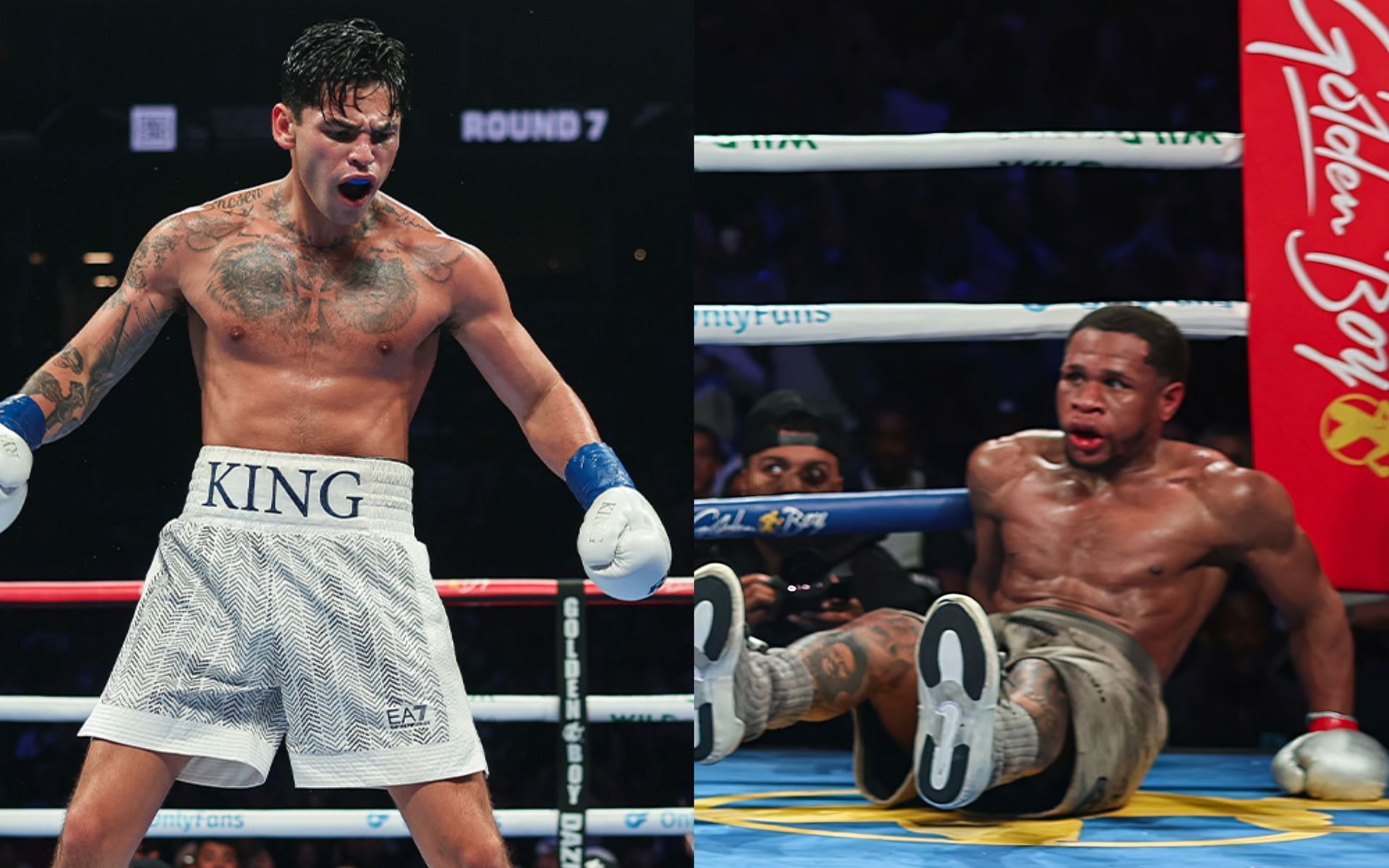
Should the Devin Haney vs. Ryan Garcia fight have been declared a DQ win for the former instead of a no-contest? [Opinion]
The Devin Haney vs. Ryan Garcia boxing match has finally had its result overturned. What had initially been a stunning upset win by a majority decision in Garcia's favor is now a no-contest due to the latter's positive drug test for ostarine, a performance-enhancing drug.
The pair's bout has been marred by controversy for some time now, even before their official meeting inside the squared circle. Garcia had failed to make weight for the matchup, coming in at a little over three pounds over the super lightweight championship limit, rendering him ineligible to win the title.
Nevertheless, Garcia authored the performance of a lifetime against Haney. Unfortunately for him, the merits of his win were called into question following his positive drug test, and now the win itself has been scrubbed from the record book. But, should it have been a disqualification instead?
Examining Ryan Garcia's culpability
The line between a no-contest and a disqualification is defined by the offending party's intention. If it can be ascertained that a boxer deliberately broke the rules, then a disqualification is warranted. For example, an accidental headbutt that renders an opponent unable to continue fighting leads to a no-contest.
This illustrates the nature of no-contests being the result of unforeseen and unnatural/illegal variables that influence the course of the bout. A fighter who is left blinded by swollen eyes after absorbing one too many blows loses via TKO. Though an accidental elbow, which is illegal in boxing, would be a no-contest.
Meanwhile, a disqualification is caused by repeated fouls like several blows to the groin after referee warnings, or biting: actions from which intention can be clearly derived. Tampering with the gloves to facilitate a win is also an offense that would lead to disqualification in most cases.
So, to determine whether Ryan Garcia's no-contest against Devin Haney should instead be a disqualification requires knowledge of the former's intention. Unfortunately, it is impossible to know if he truly intended to take ostarine to gain an advantage, but the evidence suggests it was an accidental ingestion.
Garcia cited tainted supplements as the reason for his positive ostarine tests. He identified two products: the raspberry-lemonade-flavored NutraBio SuperCarb and the strawberry-flavored amino acid blend Body Health. Garcia submitted both supplements to the Sports Medicine Research and Testing Laboratory (SMRTL).
SMRTL corroborated his claims, finding 70-2200 picograms of ostarine per gram in NutraBio SuperCarb and 660 to 830 picograms per gram in Body Health. In short, the amount of ostarine in Garcia's system corresponds to unintentional ingestion, as it was too little for him to believe it would have any pronounced effect.
Moreover, the supplements themselves revealed themselves to be tainted, further backing up his claim of unintentional ingestion. As a result of not knowingly taking ostarine, the no-contest and one-year suspension Garcia received is a just verdict.